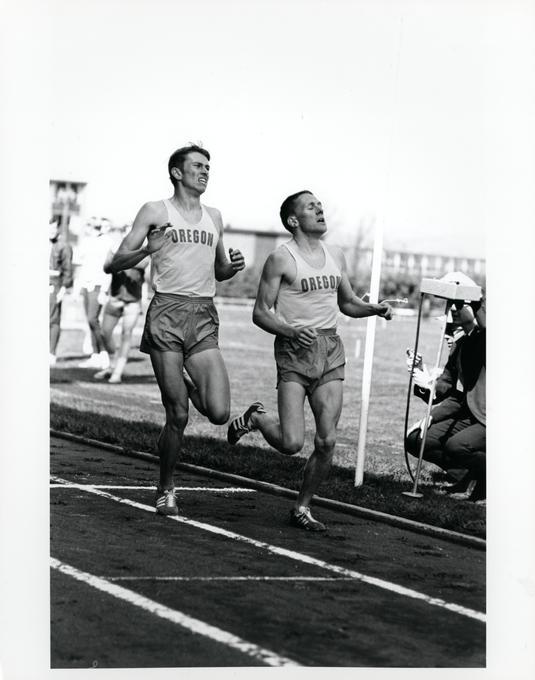Dave Wilborn, who I had a chance to interview a few weeks ago for The Art of Running podcast, just sent me the below. It is a list of the fastest milers in the world in 1967. I added the bold to highlight those in the 1967 WR race.
Drew, indicating how impressive that race was in Bakersfield in 1967. Below is a list of the fastest individuals in the world in 1967 in the mile (no 1500 equivalents, just the mile):
1) Jim Ryun, obviously, fastest miler in the world in 1967 at 3:51.1
2) Kip Keno (Kenya) 2nd fastest at 3:53.1
3) Jim Grelle 3rd fastest 3:56.1
4) Dave Wilborn 4th fastest at 3:56.2
5) Tom Von Ruden 5th fastest at 3:56.9
6) Roscoe Divine 6th fastest at 3:57.2
7) Andre De Hertoghe (Belgium) 7th fastest at 3:57.3
8) Alan Simpson (Great Britain) 8th fastest at 3:57.6
9) Dave Bailey (Canada) 9th fastest at 3:57.7
10) Anders Garderud (Sweden) 10th fastest at 3:58.6
11) Sam Bair 11th fastest at 3:58.7
12) Allan Rushmer (Great Britain) 12th fastest at 3:58.7
In other words, 6 of the 12 (50.0%) fastest milers in the world in 1967, all from that Bakersfield race!! Someone might say that most of the world ran the 1500 and not the mile. OK, the results below combine the 1500 and the mile by adding 17 seconds (the most commonly used conversion) to the fastest 1500 runners in the world in 1967 (if an individual had a 1500 time that was better than his mile time, the 1500 time is used below):
1) Jim Ryun fastest at 3:51.1
2) Kip Keno (Kenya) 2nd fastest at 3:53.1
3) Jean Wadoux (France) 3rd fastest at 3:55.4
4) Jim Grelle 4th fastest 3:56.1
5) Dave Wilborn 5th fastest at 3:56.2
6) Ulf Hogberg (Sweden) 6th fastest at 3:56.3
7) Andre De Hertoghe (Belgium) 7th fastest at 3:56.5
8) Anders Garderud (Sweden) 8th fastest at 3:56.6
9) Claude Nicolas (France) 9th fastest at 3:56.7
10) Tom Von Ruden 10th fastest at 3:56.9
11) Roscoe Divine 11th fastest at 3:57.2
12) Manfred Matuschewski (East Germany) 12th fastest at 3:57.2
13) Arne Kvalheim (Norway) 13th fastest at 3:57.4
14) Igor Potapchenko (USSR) 14th fastest at 3:57.4
15) Francesco Arese (Italy) 15th fastest at 3:57.5
16) Bodo Tummler (West Germany) 16th fastest at 3:57.5
17) Alan Simpson (Great Britain) 17th fastest at 3:57.6
18) Olyeg Raiko (USSR) 18th fastest at 3:57.6
Now we have all the fastest 1500/mile runners in the world in 1967 and we still have 5 of the 12 (41.6%) fastest, all from that Bakersfield race.
"The Milers" by Cordner Nelson and Roberto Quercetani. Published in 1985 by T&F News, Los Altos, CA. Previous edition published in 1973 under title "Runners andRaces: 1500m./Mile."


